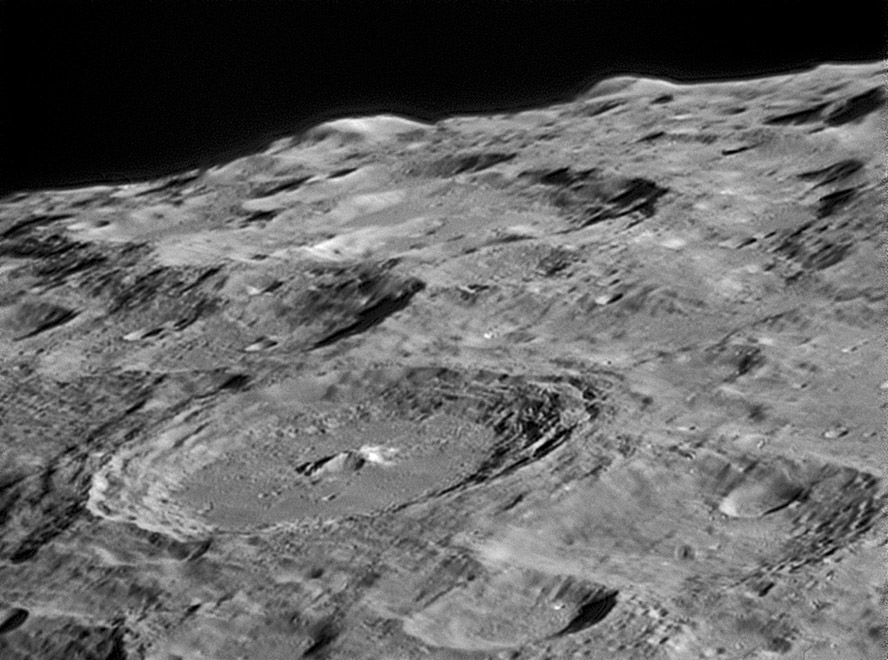October 20, 2023
Peakly Pleasures
Originally published October 5, 2013

image by Leo Aerts, Belgium
This is the Moon of our dreams. Craters overlap, butt against each other, and extend to the horizon. Here that isn't very difficult because 114 km wide Moretus (foreground) is already at 70°N. Moretus, named for a man from Belgium (like Leo but 400 years earlier), is a larger version of Tycho, but a little less deep (4.5 km vs 4.9 km) perhaps because it is older. The greater age is evidenced by its lack of rays, and the absence of evidence of the impact melt that must have once veneered its floor. Perhaps one day the slope along its southern wall will provide easy wheeled access to its floor - but I am not sure why anyone would want to go there except perhaps to see the rille along the eastern edge of its floor. Nearly touching Moretus to the south is Short and poleward is the step-down triplet of Newton, with smooth floors visible. Beyond is the tall mountain that seems to be near the rim of Cabeus. This is, I think, the M1 of Whitaker's classic 1954 map. The other peak on the horizon may be M3, but to confirm requires Jim Mosher's LTVT to carefullly plot it. It's time for someone to accurately identify all the classic (Schröter and Whitaker) south polar peaks on the LRO polar mosaic.
Chuck Wood
Technical Details
September 24th 2013. Celestron 14, 2.5x powermate, red filter, dispersion corrector and DMK 21AF03 webcam.
Related Links
21st Century Atlas charts 15 & L4.
Yesterday's LPOD: Raising the Bar
Tomorrow's LPOD: First To the Moon
COMMENTS?
Register, Log in, and join in the comments.



